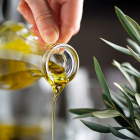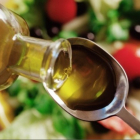In the global market, demand for high-quality EVOO is increasing, driven by both growing consumer awareness of nutrition and the expansion of gastronomy that uses EVOO as a key ingredient. However, high-quality EVOO production faces many challenges, including fluctuations in climate conditions, pests and olive diseases, as well as limitations of traditional production technologies.
The main objective of this paper is to explore technological innovations in EVOO production and how current challenges can be addressed in terms of efficiency, quality and sustainability.
Traditional technologies in EVOO production
Routine procedures
Extra virgin olive oil (EVOO) production follows traditional methods that have evolved over centuries. These methods can be divided into several main stages:
- Olive harvest: Manually or mechanically harvesting the olives from the tree is the first step in EVOO production.
- Washing and Cleaning: Olives are washed to remove impurities such as dirt and leaves.
- Grinding: The olives are ground to form a paste. Traditionally, it was made of millstones.
- Beating the Dough: Olive paste is beaten to facilitate extraction of the oil.
- Pressing: The paste is pressed to separate the oil from the solids and water. Traditionally, this is done using hydraulic pressures.
- Rubbing: Oil is separated from water and other wastes by natural sedimentation or centrifuges.
- Storage: The oil is stored under controlled conditions to maintain its quality.
The technology is very useful for improving the quality and efficiency of extra virgin olive oil. Photo: Istock
limitations
Although these traditional methods have proven effective for producing high-quality oil, they have several limitations:
- Performance: Traditional methods are generally slow and labor-intensive, which increases production costs.
- Performance: Oil extraction efficiency is generally low compared to modern technologies, resulting in low efficiency.
- Grade: Exposure to air and lack of temperature control during processing can affect oil quality, including oxidation and loss of phenolic compounds.
- Environmental impact: The generation of wastes such as albiorujo and wastewater is an environmental problem associated with traditional methods.
- Size: Traditional methods are less suitable for large-scale production, limiting their ability to meet growing market demand.
These limitations open the door to exploring and adopting emerging technologies that can effectively address these challenges.
Emerging technologies
Emerging technologies in extra virgin olive oil (EVOO) production seek to address the limitations of traditional methods, improving efficiency, yield and quality of the final product. Some of these technologies are described below:
Pulsed Electric Fields (PEF)
Pulsed electric fields apply brief electrical pulses to the olive paste, which helps release the oil. This results in an efficiency increase of up to 20%.
PEF treatment improves the extraction of phenolic compounds, which improves the antioxidant properties of the oil.
High Pressure (HPP)
High hydrostatic pressure (HPP) is used to improve oil separation and preserve product quality. This can increase the extraction yield by 10-15%.
HPP also improves the oxidative stability of the oil, which extends its shelf life.
Ultrasound (US)
Ultrasound technology uses high-frequency sound waves to break down the cell walls of olivine, releasing the oil. This can increase the extraction yield by 15-20%.
Ultrasound enhances the extraction of bioactive compounds such as polyphenols and tocopherols that are beneficial to health.
Microwave Treatment (MW)
Microwave treatment heats the olive paste evenly, making it easier to extract the oil. This results in an efficiency increase of up to 25%.
Microwave treatment can also improve the oxidative stability of the oil, which is beneficial for its long-term storage.
These emerging technologies offer new opportunities to overcome the limitations of traditional methods, improving EVOO efficiency, effectiveness and quality.
Consumer acceptability
Consumer acceptance is an important factor in the success of any technological innovation in extra virgin olive oil production. As emerging technologies gain traction, understanding how consumers perceive these changes is critical. Some consumers are skeptical about the introduction of new technologies into a traditional product such as oil, worried about possible effects on the taste, quality and nutritional properties of the oil.
There are already studies that have analyzed this topic, such as the one published in the journal Impact of Processing in antioxidant-rich foods In 2021.
Extra virgin olive oil is one of the most prized varieties by consumers. Photo: Istock
Willingness to pay more for quality and convenience
Many studies show that consumers are willing to pay more for high-quality olive oil, especially if they are informed about the health benefits and improvements in the production process. Transparency in the product label, which includes information about the technologies used in production, can be a determining factor in consumer acceptability.
- Clear labeling: Brands using emerging technologies often include this information in their labeling to educate consumers about the benefits of these technologies, such as higher antioxidant content or longer shelf life.
- Awareness Campaigns: Some companies and brands are running campaigns to educate the public about the benefits of new technologies in EVOO production.
- Market Research: Research that assesses consumer willingness to pay more for EVOO produced with emerging technologies can provide producers with valuable information.
- Controlled Flavors: Taste testing under controlled conditions will help assess how emerging technologies affect EVOO’s sensory properties, which are important for consumer acceptance.
Consumer education and labeling transparency are key strategies to improve the acceptability and ultimately commercial success of these technological innovations.
Environmental impact of new technologies
The production of extra virgin olive oil generates a significant amount of waste known as olive oil mill wastewater. These wastes are rich in organic compounds and pose an environmental challenge if not properly managed.
Emerging technologies in olive oil production have the potential to reduce environmental impact by improving process efficiency and reducing waste generation. For example, technologies such as pulsed electric fields (PEF) and high hydrostatic pressure (HPP) can increase extraction yields, reducing the amount of olives required and thus the waste generated.
- OMW Recycling: Some emerging technologies allow the recovery of phenolic compounds from oil refinery wastewater, which can be used in the food or pharmaceutical industry.
- Olive Biorefineries: There are projects to convert oil refinery waste into value-added products such as biogas, fertilizers or animal feed.
- Sustainability Certificates: Some oil refineries using emerging technologies are seeking sustainability certifications to demonstrate their commitment to reducing environmental impact.
- Life Cycle Studies: Assessing the life cycle of emerging technologies compared to traditional methods can provide a comprehensive view of the environmental impact of the entire production chain.
These aspects are increasingly important in a global market where sustainability is a growing concern for both producers and consumers.
Price and economic factors
But it’s not all good news.
The price dynamics of Extra Virgin Olive Oil (EVOO) in Spain have undergone significant changes in recent times. According to data from the Ministry of Agriculture, cost of origin 37% increase In just six months, it crossed seven euros per kilo. This increase is also reflected in supermarkets, where the price of a liter has already exceeded 10 euros.
Reasons for price hike
Many factors contribute to this price rise. At the national level, drought and poor harvests have affected production, while production costs have increased. Internationally, the supply crunch and energy crisis have driven up packaging and distribution costs. On the other hand, the invasion of Ukraine has disrupted the price of sunflower oil, which has increased the demand for olive oil.
Global impact
These changes have a global impact, as Spain represents 44% of world production and 59% of olive oil exports. Italy, the main competitor, produces only 10% and also imports a large amount of Spanish oil.
Effects on consumers
Households are particularly vulnerable to this situation as they face rising food costs. The price hike led to a 51% drop in domestic olive oil consumption in Spain in the first half of 2023.
Future predictions
The price of EVOO is expected to continue to rise, reaching 12 euros per kilo by spring 2024. This raises concerns that olive oil will become a luxury item.
In this regard, olive pomace oil is worth mentioning. This fat is obtained through the second centrifugal refining of olives, and although its quality is lower than EVOO, it is an excellent alternative for frying compared to other vegetable oils.
Olive oil, Spain’s ‘liquid gold’. Photo: Istock
Extra virgin olive oil production is a sector that has experienced significant advances through the integration of emerging technologies. These innovations provide solutions to the limitations inherent in traditional methods, improving aspects such as product performance, quality and sustainability. Technologies such as pulsed electric fields (PEF), high hydrostatic pressure (HPP), ultrasound (US) and microwave treatment (MW) have proven effective in improving extraction efficiency and oil quality.
However, adoption of these technologies presents challenges such as consumer acceptance and environmental impact. Consumer education and labeling transparency are key strategies to improve the acceptability and ultimately commercial success of these technological innovations.
Notes:
- Clotovio, ML; Camposo, S.; Amirante, R.; Distazo, E.; Tamborino, A.; Chico, N.; Bosco, VD “Impact of Emerging Technologies on Virgin Olive Oil Processing, Consumer Acceptance and Valuation of Olive Mill Waste.” Antioxidants 2021, 10, 417. MDPI
- Innocenzo Muzzalupo (Ed.), “Technological Innovation in the Olive Oil Production Chain.” Intech Open2021. InTechOpen



